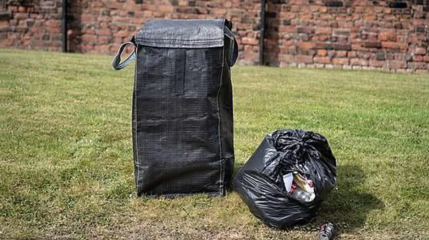
Climate-proof your home - the Met Office says so!
 Sian Hiatt, Sales Manager, provides some useful tips to help climate-proof your home...
Sian Hiatt, Sales Manager, provides some useful tips to help climate-proof your home...
We should probably take what the Met Office say about climate change pretty seriously, and according to them, climate change is the ‘large-scale, long-term shift in the planet’s weather or temperature patterns’.
Since 1901, the temperature of the Earth’s surface has increased by 0.89˚C.
This may not seem like a lot, but small changes in global temperature can pack a nasty punch.
A rising temperature may seem pretty ideal at first, especially for us Brits.
However, the prospect of longer, warmer summers certainly has its long-term downsides.
Extreme weather conditions would be the chief consequence.
UK winters could be up to 23% wetter while summers could be 24% drier. These facts alone won’t give us cause for concern, but things change when we consider the knock-on effect these conditions can create - increased risks of severe flooding and the number of properties being prone to overheating, as well as a rise in the spread of infectious diseases.
The risk of flooding and overheating is so severe that it’s recommended the UK population take additional action on their properties within the next 5 years.
But what can you homeowners do to climate-proof your home?
Well, here are a few things you can do to make your home better equipped for climate change…
1. Cover your roofs with greenery
It’s true, grass and plants on the roof have plenty of benefits. It will reduce heat penetration, which effectively limits the risk of overheating, while also helping to alleviate the risk of flooding as more water runoff can be absorbed.
Might be worth researching how to best go about implementing this one, though - an artificial lawn on the roof won’t suffice!
2. Install insect screens
Insect screens won’t greatly protect your house from climate change - though they will help improve natural ventilation - but they can protect you by preventing unwanted visitors like mosquitos from entering with those nasty diseases.The simplest way to reduce the amount of water we use across the home is by using water-efficient appliances. A low-flow shower and ultra-low flush toilet alone can help save a combined total of 15,000 litres of water per person per year.
4. Higher electrical sockets and appliances
A useful tip for all homeowners, but especially for those who are already particularly vulnerable to floods or the incoming increased risks, is to raise the height of all electrical sockets and appliances so that they sit above any likely flood levels within your area.
5. Opt for concrete floors
Replacing any lower-level wooden with concrete will further increase your properties protection against flooding. It may be a costly outlay, but a home with a concrete floor could see its insurance claims reduced by as much as 80%.
6. Install some solar shading
The UK has been used to cold weather for a long time, so homes here are designed to keep in the warmth. When it comes to keeping us cool, we usually need to strip the shelves in electrical stores clear of all fans. This is where some solar shading can help, as shutters, curtains or reflective blinds over the windows can adequately protect the property from the sun’s heat, thereby reducing the indoor temperature.
7. A greener garden
Lawns may require regular upkeep - meaning they suit some homeowners more than others - but besides providing a better outside play area for the kids than paving does, they also reduce the risk floods can bring by absorbing more water.
Alternatively, instead of paved driveways, consider installing a driveway with permeable materials like gravel instead as this will allow the rainwater to soak through and drain away.
8. Catch that rainwater
Speaking of rainwater, a £50 water butt to catch the rain can help save 400 litres of water per person per year while also reducing energy emissions. They can even help those with a water meter save money.
9. Preservative treatments on doors, frames and sills
If your home can withstand a soaking and dry out with minimal damage, you’ll be in a better position to cope should the worse happen. Treating wooden doors, frames and sills with a preservative to keep the flooding water out is a great way to reduce the risk of damage, or better yet, switch to something inherently resilient if you’re carrying out home upgrades anyway.It may even add some value to your property!
10. Passive cooling measures
Finding ways to cool your property with minimum energy consumption can achieved by practicing the art of night purging - which means keeping your windows closed during the day and open at night to flush out the warm air. Ceiling fans are another way to introduce some passive cooling measures.
Are you on the lookout for a property in Cardiff? Perhaps you're a first-time buyer, or looking to either upsize or downsize your home? If so, why not get in touch with our knowledgeable sales team to see how we can help? We may even have the perfect climate-change ready property for you to view! Contact us by calling 02920 668585, e-mail enquiries@cpshomes.co.uk or pop into one of our three Cardiff based branches.
The information contained within this article was correct at the date of publishing and is not guaranteed to remain correct in the present day.


